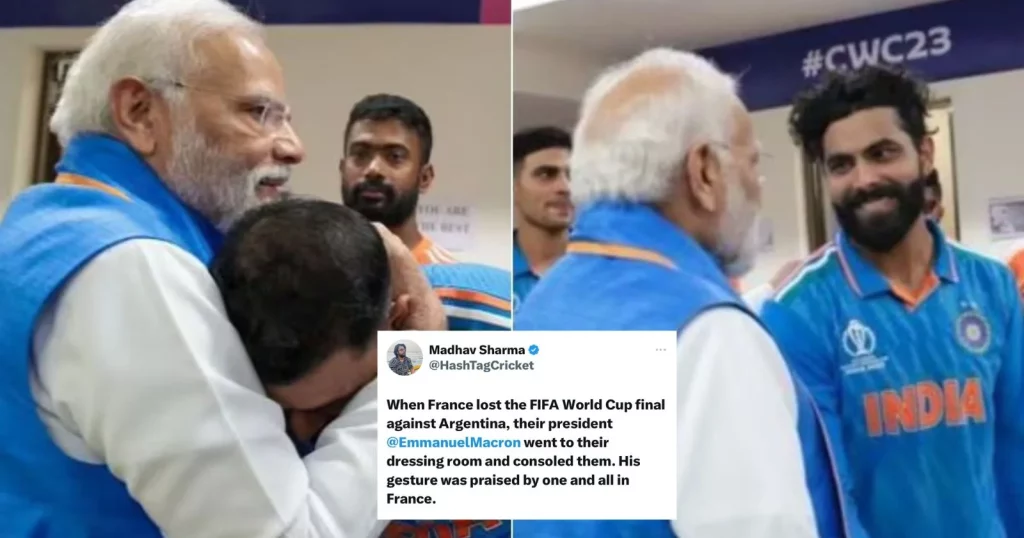The cricketing world witnessed an intense clash of titans on November 19, 2023, at the iconic Narendra Modi Stadium in Ahmedabad. India, having dominated the tournament with a flawless 10 out of 10 victories, faced a heartbreaking defeat in the final of the ICC Cricket World Cup 2023. The nation stood united in their pursuit of championship glory, and the loss in the final was a bitter pill to swallow.
India’s hopes rested on the shoulders of cricket maestros Virat Kohli, KL Rahul, and Rohit Sharma. Their batting display, marked by a half-century from Kohli and Rahul, coupled with a quickfire start from Sharma, brought India’s total to a respectable 240. However, the Australian bowlers had other plans.
In the second inning, the spotlight shifted to Australian batsman Travis Head, whose remarkable 137-run innings not only secured victory for Australia but also left an indelible mark on the tournament. This wasn’t the first time Head had stolen the show; he had previously showcased his prowess in the ICC World Test Championship earlier that year, leaving India grappling with his exceptional skills once again.
The aftermath of the defeat was emotionally charged, with stalwarts like Kohli, Rohit, and Shami visibly distraught. The dressing room, once filled with cheers, now echoed with the sombre silence of shattered dreams. The players had poured their heart and soul into the tournament, only to fall agonizingly short of the elusive victory.
Here Is Why Opposition Parties Are Wrong To Politicise PM Modi’s Gesture To Team India
India’s Prime Minister Narendra Modi, a spectator at the stadium, personally visited the Indian dressing room after the game. His intention was clear – to uplift the spirits of the disheartened players and offer words of encouragement. His gesture mirrored that of other world leaders, like French President Emmanuel Macron, who consoled the French football team after their FIFA World Cup final loss.
However, in Indian politics, the opposition, particularly the Congress party, chose to politicise the moment. Instead of acknowledging the Prime Minister’s support as a genuine display of empathy, they attempted to paint it as an election campaign strategy. The opposition spared no opportunity to criticise Modi, going so far as to term it a political move.
Drawing a parallel with Macron’s support for the French football team, it becomes evident that the reactions to such gestures differ across nations. While Macron’s actions were universally praised, PM Modi faced unwarranted criticism from some political quarters in India. It raises a crucial question: should supporting the national team in times of defeat be immune to political scrutiny?
In times of adversity, the nation looks to its leaders for solace and support. PM Modi’s visit to the Indian dressing room showcased his commitment to stand by the team in their toughest moments. As citizens, it is imperative to rise above political divides and appreciate moments of unity, especially in sports.
Regardless of political affiliations, supporting the national team should be a collective endeavor. As citizens, we must rise above political prejudices and acknowledge the importance of unity in the face of defeat. PM Modi’s gesture, far from being a political maneuver, was an embodiment of national solidarity.
When France lost the FIFA World Cup final against Argentina, their president @EmmanuelMacron went to their dressing room and consoled them. His gesture was praised by one and all in France.
But, when PM @narendramodi did the same after India lost the Cricket World Cup final,… pic.twitter.com/FqVXflN1Gy
— Madhav Sharma (@HashTagCricket) November 21, 2023
Political affiliation apart, at this act, I am with my Prime Minister. We are with our men in blues 💙
— Rathin Dutta 𝕏 (@IamRathinDutta) November 21, 2023
He did good
A true leader— Kushagra Wadhwa (@Kushagraw12) November 21, 2023

